An interview with Hugo Rourke, conducted by James Ives, MPsych
Please give a general overview of medication adherence, how this affects patients and healthcare.
Medication nonadherence is the phenomenon of people not sticking to their medication. Either stopping completely before they're supposed to, or taking it irregularly, at such a rate that it's below the optimal level.
In developed nations one in three people have a chronic disease and yet 50% of people don't take their medications as prescribed and that has huge health consequences.
In Australia, where I have the data, that's 230,000 extra hospitalizations every year due to medication non-adherence and these would be avoidable if people just took their medication. Even more alarmingly, that accounts for 10,000 unnecessary deaths in Australia every year.
The problem is a big one for patients and industry because those poor outcomes cost money to the health system, to hospitals and health insurers, as well as being a lost revenue opportunity for pharmaceutical companies.
Why do patients stop taking or stop regularly taking their medication which is designed to help them?
For the vast majority of people, it's an underlying lack of engagement with their health and an underlying failure to form a habit around taking medication. What most patients report are: "I forgot to take it at the time", "I couldn't be bothered taking my pills with me to lunch that day", "I didn't think skipping this pill would matter in the grand scheme of things."
There are other reasons, such as side effects or beliefs around the medication not working, but for the vast majority of people it is an engagement and motivation issue and that's why it needs to be addressed by an engaging and motivating solution, not an educational one.
How is Perx addressing this large problem?
Traditionally this problem was treated with information and education. Perx is very different. Perx doesn't appeal to the perfect rational patient because these perfectly rational patients don't exist. Patients are everyday people.
What we use are proven engagement tools like consumer promotion tactics, habit forming games and behavioral psychology to treat medication adherence as a consumer problem not a medical one.
I gotta say since Downloading this app, I haven't missed one dose of scheduled medication.”
Perx User
What that looks like in simple form, is a Perx's smartphone app, that not only organizes and reminds people about their medications but follows that up with proven motivators of fun mini games and earning memorable rewards like movie tickets - to reinforce good habits and keep people sticking to their medication over the long term.
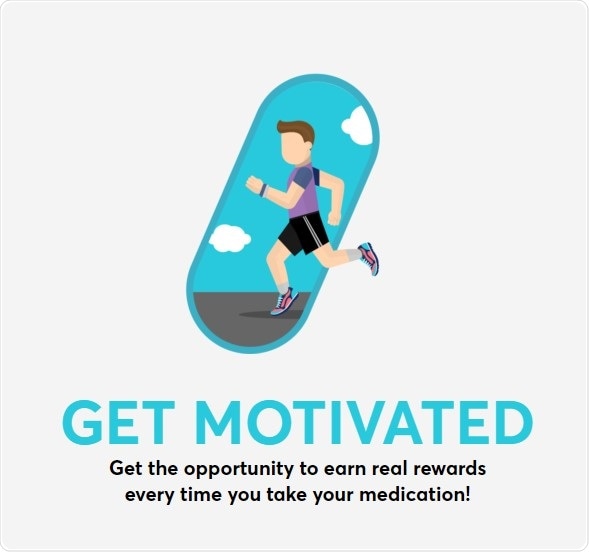
What rewards and prizes are available? How do you source your rewards? Do you work directly with companies?
Users have the opportunity to earn movie tickets, gift cards, charity donations and travel vouchers by sticking to their medication. What we are really doing here is using whatever rewards motivate people to stick to their medication.
Different people like different prizes and we're learning about which prizes provide the most motivation to keep people on their medication.
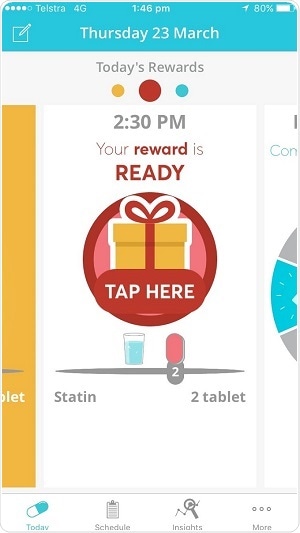
Currently, we source rewards at a largely retail price but we know there's opportunity in the future to partner with reward suppliers to bring down that cost and help us achieve sustainability for our business model.
As a younger audience are generally associated with gaming, is this app also aimed at a younger audience? Are there any restrictions on the age range?
This is an interesting question because just like you, we presumed that this app product would appeal to a younger age group…but we were mistaken. If you talk to people who work in the mobile games industry they will tell you that a middle-aged Mum is more likely to play games on her mobile than her teenage son.
So, everything you thought you knew about who is a mobile gamer is actually wrong. There are plenty of people in the 40 to 65 year old age bracket, who are playing games on their mobiles. In the age bracket above that, there are a smaller group of people but it's still millions of people and a growing.
We think the combination of games and rewards has quite broad appeal. According to our test data so far, we have users as young as 23 on the platform and people as old as 74. So, there are a wide range of people whom Perx is helping to stick with their medication.
The only restriction we have at the moment is that people must be over 18. However, in the future we would love to work with children but we think we would have to tweak our products slightly to make it suitable for their age group.
How does the app provide motivational help to the user? Does the app include therapy or motivational learning as a mechanism?
If we look at other industries that serve people as individuals, they certainly don't motivate people with information leaflets or six monthly appointments with a specialist but healthcare still does this, it's very old world.
In fact, consider all other industries that serve people rather than businesses, such as supermarkets with loyalty programs, airlines with frequent flyer schemes, consumer products with their promotions – famous examples are 'one in six chocolate bars win' or McDonald's Monopoly. All of these industries use a combination of small incentives and a fun experience to engage consumers and motivate them to change their behavior in a particular way.
For motivation Perx leverages these proven tactics, tactics that have a large evidence base that they work for people. However, once we have the person engaged and motivated and using the app, then of course we can push them some education or relevant information about their therapy.
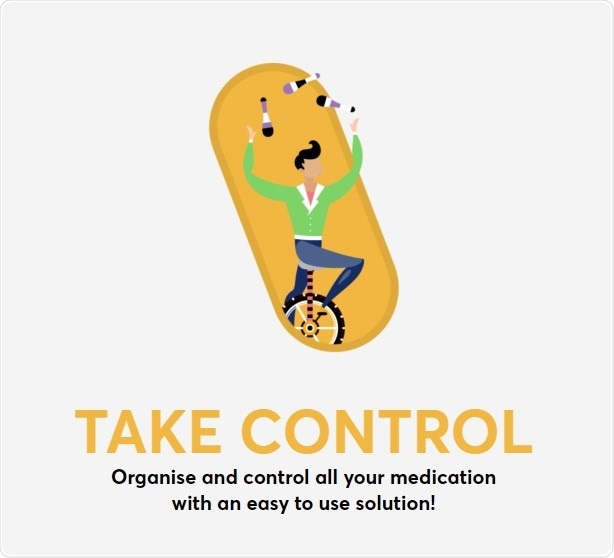
The difference here is, we don't lead with education because if you do people don't use the product. When Perx delivers information to users, we do it in a very digestible, user-friendly way. No lectures or A4 brochures on the Perx app.
What makes you different from other medication adherence apps on the market?
First and foremost, we provide motivation and a positive user experience. Most other medication adherence apps are a nagging reminder to take your medication and providing a negative experience that reinforces that you're different and that you've got a chronic condition you need to manage.
The 'positivity' is some of the strongest feedback we get from users who are currently on the Perx platform.
I actually felt myself looking forward to it which is presumably exactly the point"
Perx User
The second difference is that our subscriptions for end users are paid for by health partners, whether that's pharmaceutical companies or health insurers, which gives us a different ability and different set of objectives to other apps.
We are aligned to making sure the person gets better health outcomes. Other medication adherence apps make money by monetizing consumer 'eyeballs' - which is not a great way to optimize for people's health.
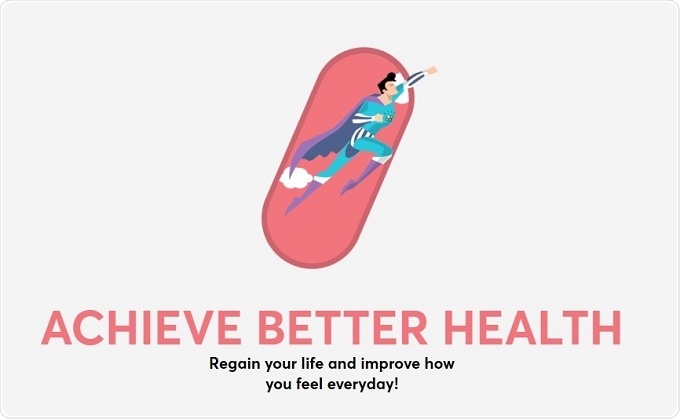
Who are your partners within the pharma, insurance and health industries?
Perx is aimed to help people keep on track with their prescriptions in the mass market. It's designed to be a scalable, low cost solution, to help as many people as possible.
Our focus is helping as many patients through our business partners and these are health insurers, public health systems and pharmaceutical companies; all of which have a financial interest in people, the greater public, keeping on track with their medication.
Our very first partner is Sydney Local Health District which is the group of public hospitals in central Sydney, Australia. This group of hospitals, is one part of the public health system in Australia and they're using Perx with their diabetes and cardiovascular clinics to help motivate people to stick their medication and therefore stay out of hospital.
Perx has contributed to my HBA1C readings being the best it has been for years."
Perx User
We're also in discussion with many of the large private health insurers in Australia, as well as five or so pharmaceutical companies. We're looking for innovative partners who will help us shape and test the products so that it can be a sustainable business.
Where is the app currently available? Do you plan to go global?
Currently the app's only available in Australia and that's where we're using it to test different ideas, to find out what works for users and what doesn't work. What keeps them motivated and what keeps them engaged over the long term.
Of course, we realize this is a highly scalable product so we do have ambitions to go global because this is also a problem that affects people globally. At the moment, we're focused on proving the product works for users and help businesses in Australia.
What steps have you implemented to stop people cheating?
The first response to this question is, in our experience with six months of live trials, is that by far and away the majority of people do not use our app to cheat. Most people realize that the app is a medication aid and support, and they don't try to game the system.
However, we do have some inbuilt mechanisms to stop people cheating, including analytics - to find if people are adding unnecessary medications, checking that people are sending through verifiable information we can check such as sending a real photo of medication.
We have other methods that we use but we keep them secret so that people can't game the system.
What does the future hold for Perx? What are your goals for the upcoming future?
We founded Perx to help as many people as possible stick to their medication and reach the best health outcomes that they can. And what that means is that we need to find a sustainable business model, with health partners who pay for the rewards, while also creating a great new experience for everyday people.
Our goals are to validate not only that we can work with health payers - like we've already done with Sydney Local Health District but also to run a trial with a large pharmaceutical company and then from there scale up. Add more partners, grow our consumer base and reach as many people as possible.
Where can readers find more information?
Readers can find more information by accessing our website which is perxhealth.com. Or, contacting us at [email protected].
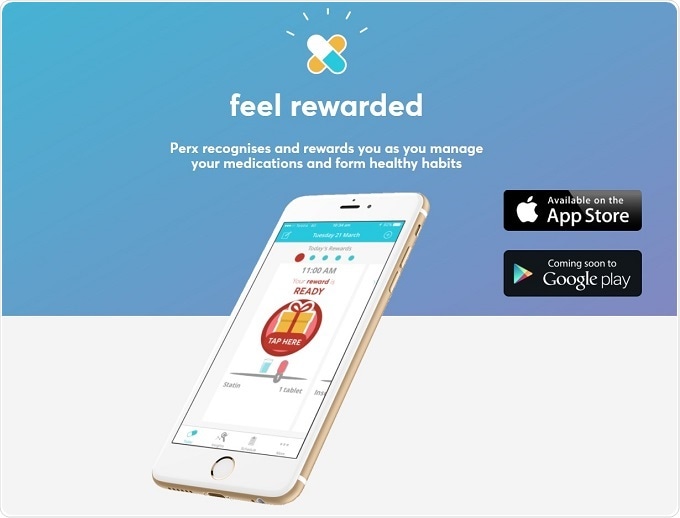
About Hugo Rourke
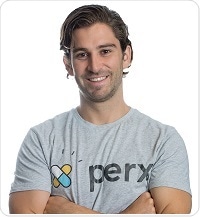 Hugo Rourke is the CEO and Co Founder of Perx Health, a young start-up that forms positive medication habits through engaging games and memorable rewards. Hugo co-founded Perx to bring many of the proven tactics from other consumer-facing industries to help the biggest hidden problem in health.
Hugo Rourke is the CEO and Co Founder of Perx Health, a young start-up that forms positive medication habits through engaging games and memorable rewards. Hugo co-founded Perx to bring many of the proven tactics from other consumer-facing industries to help the biggest hidden problem in health.
Prior to Perx, Hugo advised consumer businesses as a McKinsey consultant on how to engage and motivate consumers using promotions, product features and behavioural techniques.
An engineer by training, Hugo also loves end-to-end product design and imagining the business applications of emerging tech.